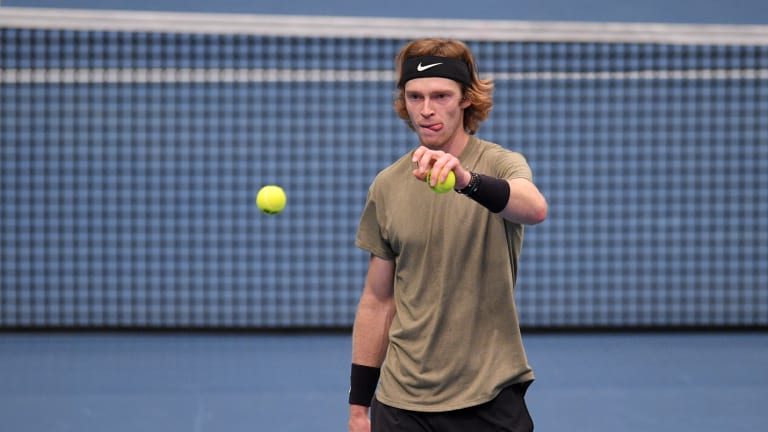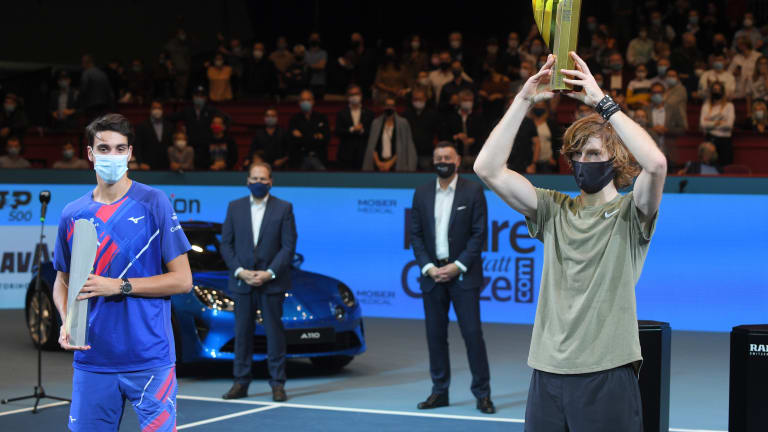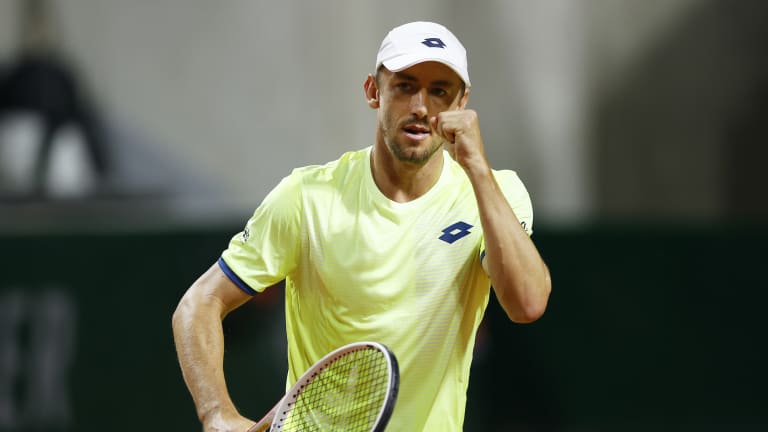Weekend Winners: Rublev takes Vienna while Millman wins in Nur-Sultan
By Nov 01, 2020Madrid, Spain
Jannik Sinner looks to close gap for world No. 1 in Madrid; Nadal draws 16-year-old Blanch
By Apr 22, 2024ATP Barcelona, Spain
Andrey Rublev implodes at end of Barcelona exit after Brandon Nakashima clinches upset
By Apr 16, 2024Pop Culture
ATP stars pick their 'GMOAT': Greatest Musician of All Time
By Apr 15, 2024ATP Monte Carlo, Monaco
Aussie on clay: Alexei Popyrin dethrones defending Monte Carlo champ Andrey Rublev
By Apr 10, 2024ATP Monte Carlo, Monaco
Monte Carlo Preview: Djokovic, Sinner, Alcaraz take first steps on the road to Roland Garros
By Apr 05, 2024Social
Karen Khachanov, Andrey Rublev raise $100,000 for displaced Armenians in UCLA exhibition
By Mar 26, 2024Lifestyle
Puppies steal the show as players participate in community service efforts at Miami Open
By Mar 26, 2024Miami, USA
Tomas Machac becomes third Czech to oust Andrey Rublev in last 30 days with Miami win
By Mar 23, 2024Style Points
Sunshine Swing style roundup: From ‘Barbie’ pink and cool gray, to new sponsors and custom kits
By Mar 22, 2024Weekend Winners: Rublev takes Vienna while Millman wins in Nur-Sultan
How Andrey Rublev continued his relentless rise in Vienna, and John Millman was rewarded for a career’s worth of professionalism with his first title, in Nur-Sultan.
Published Nov 01, 2020
Advertising

Weekend Winners: Rublev takes Vienna while Millman wins in Nur-Sultan
© Getty Images
Advertising

Weekend Winners: Rublev takes Vienna while Millman wins in Nur-Sultan
© Getty Images
Advertising
Advertising

Weekend Winners: Rublev takes Vienna while Millman wins in Nur-Sultan
© 2020 Getty Images